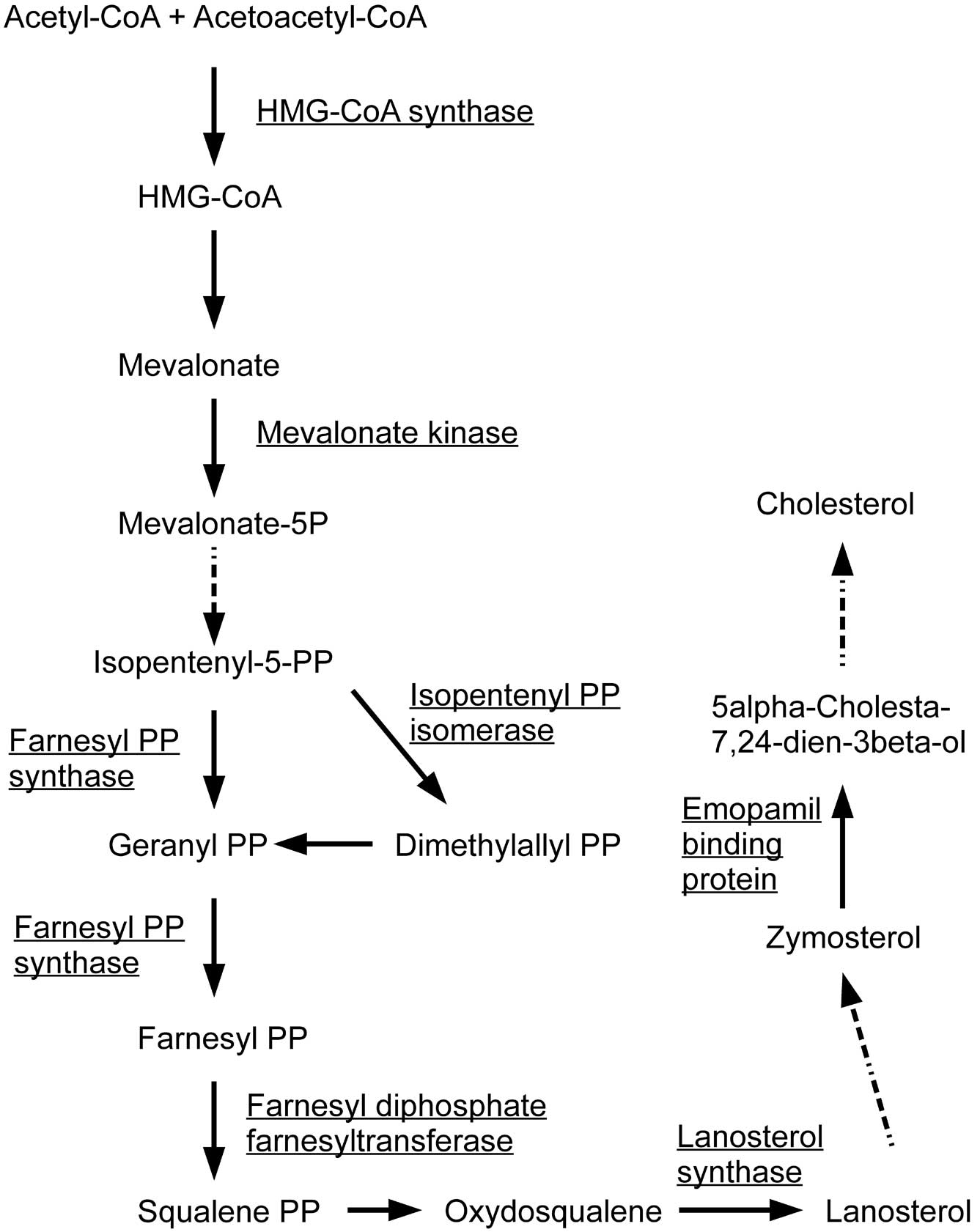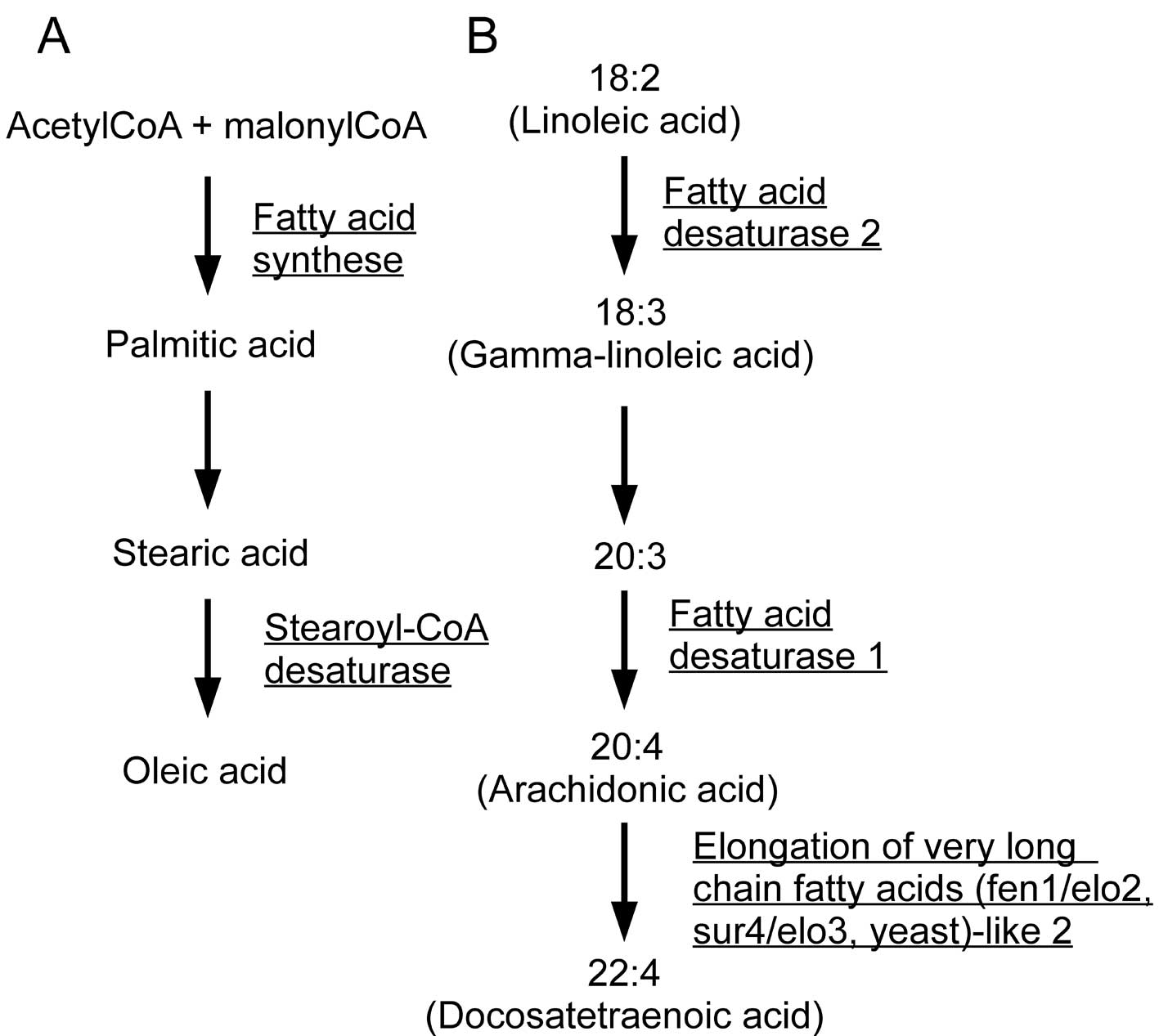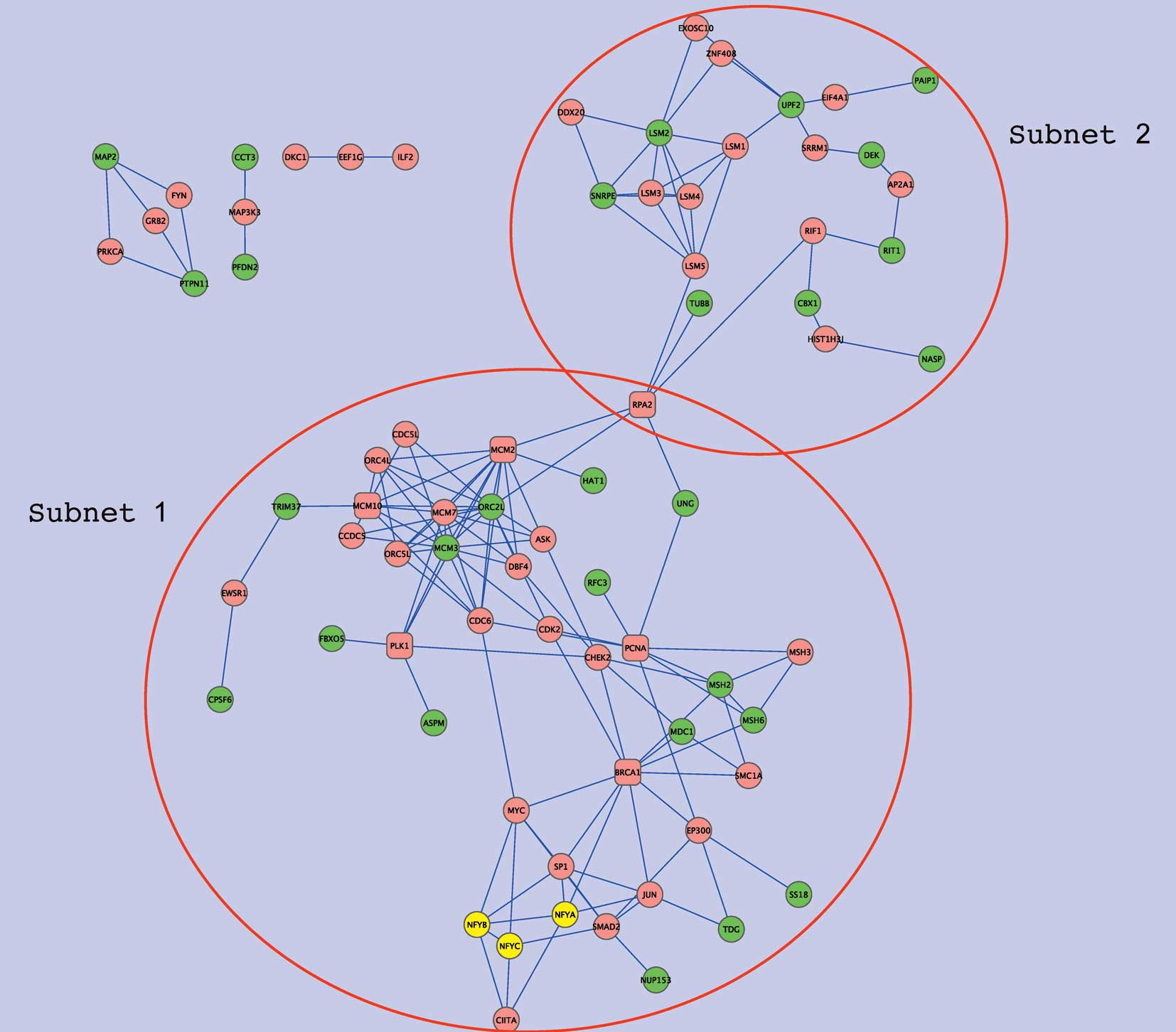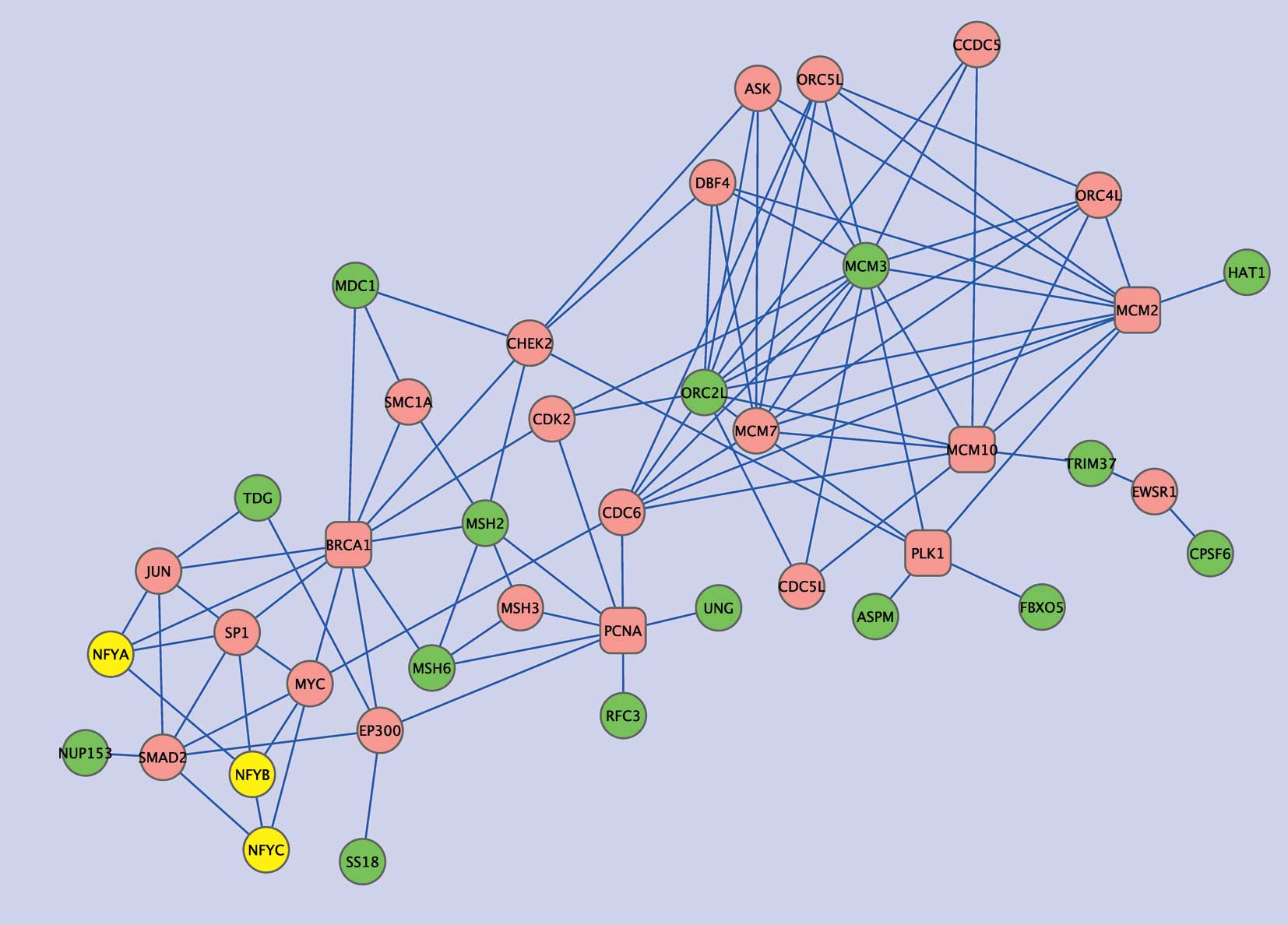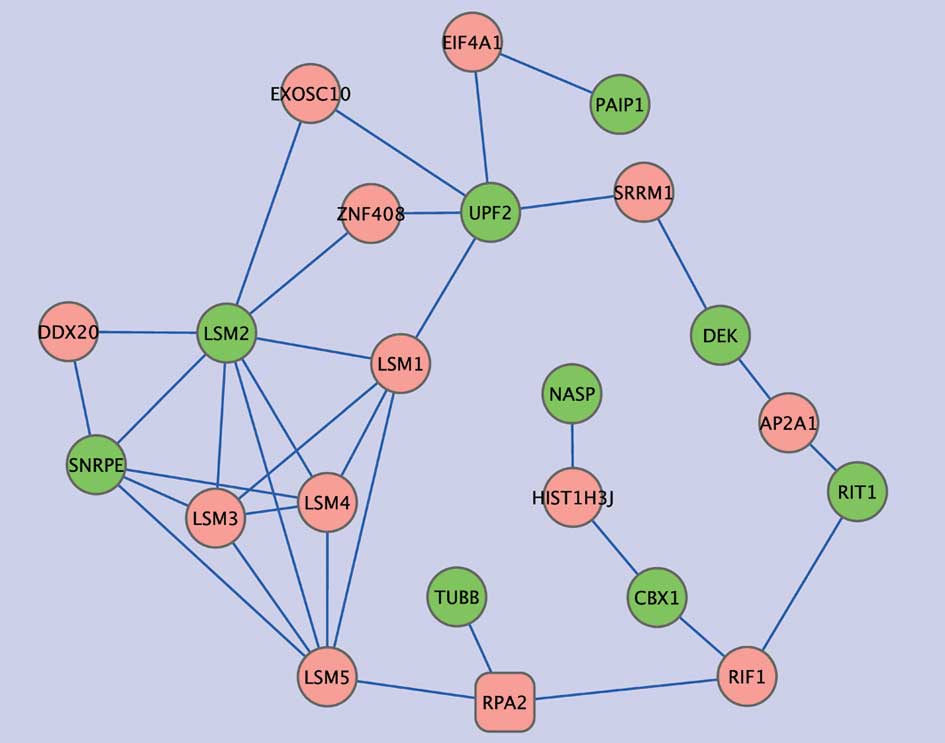|
1
|
TE StinchcombeMA SocinskiCurrent
treatments for advanced stage non-small cell lung cancerProc Am
Thorac Soc6233241200910.1513/pats.200809-110LC19349493
|
|
2
|
T MitsudomiY YatabeMutations of the
epidermal growth factor receptor gene and related genes as
determinants of epidermal growth factor receptor tyrosine kinase
inhibitors sensitivity in lung cancerCancer
Sci9818171824200710.1111/j.1349-7006.2007.00607.x
|
|
3
|
J BeanC BrennanJY ShihG RielyA VialeL
WangMET amplification occurs with or without T790M mutations in
EGFR mutant lung tumors with acquired resistance to gefitinib or
erlotinibProc Natl Acad Sci
USA1042093220937200710.1073/pnas.071037010418093943
|
|
4
|
S YanoW WangQ LiK MatsumotoH SakuramaT
NakamuraHepatocyte growth factor induces gefitinib resistance of
lung adenocarcinoma with epidermal growth factor
receptor-activating mutationsCancer
Res6894799487200810.1158/0008-5472.CAN-08-164319010923
|
|
5
|
WR FarwellRE ScrantonEV LawlerRA LewMT
BrophyLD FioreThe association between statins and cancer incidence
in a veterans populationJ Natl Cancer
Inst100134139200810.1093/jnci/djm28618182618
|
|
6
|
V KhuranaHR BejjankiG CalditoMW
OwensStatins reduce the risk of lung cancer in humans: a large
case-control study of us
veteransChest13112821288200710.1378/chest.06-093117494779
|
|
7
|
ML TaylorBJ WellsMJ SmolakStatins and
cancer: a meta-analysis of case-control studiesEur J Cancer
Prev17259268200810.1097/CEJ.0b013e3282b721fe18414198
|
|
8
|
J HaukkaR SankilaT KlaukkaJ LonnqvistL
NiskanenA TanskanenIncidence of cancer and statin usage-record
linkage studyInt J Cancer126279284201010.1002/ijc.2453619739258
|
|
9
|
AJ ManthaKE McFeeN NiknejadG GossIA
LorimerJ DimitroulakosEpidermal growth factor receptor-targeted
therapy potentiates lovastatin-induced apoptosis in head and neck
squamous cell carcinoma cellsJ Cancer Res Clin
Oncol129631641200310.1007/s00432-003-0490-2
|
|
10
|
AJ ManthaJE HansonG GossAE LagardeIA
LorimerJ DimitroulakosTargeting the mevalonate pathway inhibits the
function of the epidermal growth factor receptorClin Cancer
Res1123982407200510.1158/1078-0432.CCR-04-195115788691
|
|
11
|
T KusamaM MukaiT IwasakiM TatsutaY
MatsumotoH AkedoInhibition of epidermal growth factor-induced RhoA
translocation and invasion of human pancreatic cancer cells by
3-hydroxy-3-methylglutaryl-coenzyme a reductase inhibitorsCancer
Res61488548912001
|
|
12
|
IH ParkJY KimJI JungJY HanLovastatin
overcomes gefitinib resistance in human non-small cell lung cancer
cells with K-Ras mutationsInvest New
Drugs28791799201010.1007/s10637-009-9319-419760159
|
|
13
|
I BuhaescuH IzzedineMevalonate pathway: a
review of clinical and therapeutical implicationsClin
Biochem40575584200710.1016/j.clinbiochem.2007.03.01617467679
|
|
14
|
LJ PikeL CaseyCholesterol levels modulate
EGF receptor-mediated signaling by altering receptor function and
traffickingBiochemistry411031510322200210.1021/bi025943i12162747
|
|
15
|
T RingerikeFD BlystadFO LevyIH MadshusE
StangCholesterol is important in control of EGF receptor kinase
activity but EGF receptors are not concentrated in caveolaeJ Cell
Sci11513311340200211884532
|
|
16
|
G ParmigianiE Garrett-MayerR AnbazhaganE
GabrielsonA cross-study comparison of gene expression studies for
the molecular classification of lung cancerClin Cancer
Res1029222927200410.1158/1078-0432.CCR-03-049015131026
|
|
17
|
DA WigleI JurisicaN RadulovichM PintilieJ
RossantN LiuMolecular profiling of non-small cell lung cancer and
correlation with disease-free survivalCancer
Res6230053008200212036904
|
|
18
|
DR RhodesJ YuK ShankerN DeshpandeR
VaramballyD GhoshLarge-scale meta-analysis of cancer microarray
data identifies common transcriptional profiles of neoplastic
transformation and progressionProc Natl Acad Sci
USA10193099314200410.1073/pnas.040199410115184677
|
|
19
|
MT LandiT DrachevaM RotunnoJD FigueroaH
LiuA DasguptaGene expression signature of cigarette smoking and its
role in lung adenocarcinoma development and survivalPLoS
One3e1651200810.1371/journal.pone.000165118297132
|
|
20
|
T BarrettDB TroupSE WilhiteP LedouxD
RudnevC EvangelistaNCBI GEO: archive for high-throughput functional
genomic dataNucleic Acids
Res37D885D890200910.1093/nar/gkn76418940857
|
|
21
|
G DennisBT ShermanDA HosackJ YangW GaoHC
LaneDAVID: Database for annotation, visualization, and integrated
discoveryGenome Biol4P3200310.1186/gb-2003-4-5-p312734009
|
|
22
|
DW HuangBT ShermanRA LempickiSystematic
and integrative analysis of large gene lists using DAVID
bioinformatics resourcesNat Protoc44457200919131956
|
|
23
|
SY RheeV WoodK DolinskiS DraghiciUse and
misuse of the gene ontology annotationsNat Rev
Genet9509515200810.1038/nrg236318475267
|
|
24
|
Y BenjaminiD DraiG ElmerN KafkafiI
GolaniControlling the false discovery rate in behavior genetics
researchBehav Brain
Res125279284200110.1016/S0166-4328(01)00297-211682119
|
|
25
|
SI BergerJM PosnerA Ma’ayanGenes2networks:
connecting lists of gene symbols using mammalian protein
interactions databasesBMC
Bioinformatics8372200710.1186/1471-2105-8-37217916244
|
|
26
|
PM WatsonSW MillerM FraigDJ ColeDK
WatsonAM BoylanCaSm (LSm-1) overexpression in lung cancer and
mesothelioma is required for transformed phenotypesAm J Respir Cell
Mol Biol38671678200810.1165/rcmb.2007-0205OC18218995
|
|
27
|
X CasabiellJL ZugazaCM PomboA PandiellaFF
CasanuevaOleic acid blocks epidermal growth factor-activated early
intracellular signals without altering the ensuing mitogenic
responseExp Cell Res205365373199310.1006/excr.1993.1099
|
|
28
|
KE McKenzieGK BandyopadhyayW ImagawaK SunS
NandiOmega-3 and omega-6 fatty acids and PGE2 stimulate the growth
of normal but not tumor mouse mammary epithelial cells: evidence
for alterations in the signaling pathways in tumor
cellsProstaglandins Leukot Essent Fatty
Acids51437443199410.1016/0952-3278(94)90062-0
|
|
29
|
S MollerupA HaugenDifferential effect of
polyunsaturated fatty acids on cell proliferation during human
epithelial in vitro carcinogenesis: involvement of epidermal growth
factor receptor tyrosine kinaseBr J
Cancer74613618199610.1038/bjc.1996.410
|
|
30
|
F BennisG FavreFL GaillardG
SoulaImportance of mevalonate-derived products in the control of
HMG-CoA reductase activity and growth of human lung adenocarcinoma
cell line A549Int J
Cancer55640645199310.1002/ijc.29105504218406993
|
|
31
|
J FukuchiC SongAL KoS LiaoTranscriptional
regulation of farnesyl pyrophosphate synthase by liver X
receptorsSteroids68685691200310.1016/S0039-128X(03)00100-412957674
|
|
32
|
BM FormanB RuanJ ChenGJ SchroepferRM
EvansThe orphan nuclear receptor LXRalpha is positively and
negatively regulated by distinct products of mevalonate
metabolismProc Natl Acad Sci
USA941058810593199710.1073/pnas.94.20.105889380679
|
|
33
|
T TeranoT ShiinaY NoguchiT TanakaI
TatsunoY SaitoGeranylgeranylpyrophosphate plays a key role for the
G1 to S transition in vascular smooth muscle cellsJ Atheroscler
Thromb516199810.5551/jat1994.5.110077451
|
|
34
|
HR AsharL JamesK GrayD CarrS BlackL
ArmstrongFarnesyl transferase inhibitors block the farnesylation of
CENP-E and CENP-F and alter the association of CENP-E with the
microtubulesJ Biol
Chem2753045130457200010.1074/jbc.M00346920010852915
|
|
35
|
A ShammaY TakegamiT MikiS KitajimaM NodaT
ObaraRb regulates DNA damage response and cellular senescence
through E2F-dependent suppression of N-ras isoprenylationCancer
Cell15255269200910.1016/j.ccr.2009.03.00119345325
|
|
36
|
S KasayamaM KogaH KouharaS SumitaniK WadaT
KishimotoUnsaturated fatty acids are required for continuous
proliferation of transformed androgen-dependent cells by fibroblast
growth factor family proteinsCancer Res54644164451994
|
|
37
|
CB RenardB AskariLA SuzukiF KramerKE
BornfeldtOleate, not ligands of the receptor for advanced glycation
end-products, promotes proliferation of human arterial smooth
muscle
cellsDiabetologia4616761687200310.1007/s00125-003-1247-914595542
|
|
38
|
MN GraberA AlfonsoDL GillRecovery of
Ca2+ pools and growth in Ca2+ pool-depleted
cells is mediated by specific epoxyeicosatrienoic acids derived
from arachidonic acidJ Biol Chem272295462955319979368016
|
|
39
|
MR YunJY LeeHS ParkHJ HeoJY ParkSS
BaeOleic acid enhances vascular smooth muscle cell proliferation
via phosphatidylinositol 3-kinase/AKT signaling pathwayPharmacol
Res5497102200610.1016/j.phrs.2006.03.00116621593
|
|
40
|
E NikiLipid peroxidation: physiological
levels and dual biological effectsFree Radic Biol
Med47469484200910.1016/j.freeradbiomed.2009.05.03219500666
|
|
41
|
A TrombettaM MaggioraG MartinassoP
CotogniRA CanutoG MuzioArachidonic and docosahexaenoic acids reduce
the growth of A549 human lung-tumor cells increasing lipid
peroxidation and PPARsChem Biol
Interact165239250200710.1016/j.cbi.2006.12.01417275799
|
|
42
|
L MaehleE LystadE EilertsenE EinarsdottrAT
HstmarkA HaugenGrowth of human lung adenocarcinoma in nude mice is
influenced by various types of dietary fat and vitamin EAnticancer
Res1916491655199910470096
|
|
43
|
K MatuokaKY ChenTranscriptional regulation
of cellular ageing by the CCAAT box-binding factor CBF/NF-YAgeing
Res Rev1639651200210.1016/S1568-1637(02)00026-012362892
|
|
44
|
SD ClarkePolyunsaturated fatty acid
regulation of gene transcription: a molecular mechanism to improve
the metabolic syndromeJ Nutr13111291132200111285313
|
|
45
|
BD ReedAE CharosAM SzekelySM WeissmanM
SnyderGenome-wide occupancy of SREBP1 and its partners NFY and SP1
reveals novel functional roles and combinatorial regulation of
distinct classes of genesPLoS
Genet4e1000133200810.1371/journal.pgen.100013318654640
|
|
46
|
Q HuSN MaityStable expression of a
dominant negative mutant of CCAAT binding factor/NF-Y in mouse
fibroblast cells resulting in retardation of cell growth and
inhibition of transcription of various cellular genesJ Biol
Chem27544354444200010.1074/jbc.275.6.4435
|
|
47
|
AL ChabesS BjrklundL ThelanderS
phase-specific transcription of the mouse ribonucleotide reductase
R2 gene requires both a proximal repressive E2F-binding site and an
upstream promoter activating regionJ Biol
Chem2791079610807200410.1074/jbc.M312482200
|
|
48
|
H KoesslerJ KahleC BodeD DoeneckeW
AlbigHuman replication-dependent histone H3 genes are activated by
a tandemly arranged pair of two CCAAT boxesBiochem
J384317326200410.1042/BJ2004050215320874
|
|
49
|
KS KatulaKL WrightH PaulDR SurmanFJ
NuckollsJW SmithCyclin-dependent kinase activation and S-phase
induction of the cyclin B1 gene are linked through the CCAAT
elementsCell Growth Differ881182019979218875
|
|
50
|
S JinF FanW FanH ZhaoT TongP
BlanckTranscription factors OCT-1 and NF-YA regulate the
p53-independent induction of the GADD45 following DNA
damageOncogene2026832690200110.1038/sj.onc.120439011420680
|
|
51
|
I ManniG MazzaroA GurtnerR MantovaniU
HaugwitzK KrauseNF-Y mediates the transcriptional inhibition of the
cyclin B1, cyclin B2, and cdc25C promoters upon induced G2 arrestJ
Biol Chem27655705576200110.1074/jbc.M00605220011096075
|
|
52
|
HT KimJE LeeES ShinYK YooJH ChoMH
YunEffect of BRCA1 haplotype on survival of non-small-cell lung
cancer patients treated with platinum-based chemotherapyJ Clin
Oncol2659725979200810.1200/JCO.2008.16.649619018088
|
|
53
|
I BoukovinasC PapadakiP MendezM TaronD
MavroudisA KoutsopoulosTumor BRCA1, RRM1 and RRM2 mRNA expression
levels and clinical response to first-line gemcitabine plus
docetaxel in non-small-cell lung cancer patientsPLoS
One3e3695200810.1371/journal.pone.000369519002265
|
|
54
|
M VolmR KoomgiRelevance of proliferative
and proapoptotic factors in non-small-cell lung cancer for patient
survivalBr J Cancer8217471754200010817513
|
|
55
|
T OyamaT OsakiN NoseY IchikiM InoueH
ImotoEvaluations of p53 immunoreactivity, nucleolar organizer
regions, and proliferating cell nuclear antigen in non-small cell
lung carcinomaAnticancer Res20505510200010769714
|
|
56
|
Q ZhouY SuM BaiEffect of antisense RNA
targeting polo-like kinase 1 on cell growth in A549 lung cancer
cellsJ Huazhong Univ Sci Technolog Med
Sci282226200810.1007/s11596-008-0106-918278450
|
|
57
|
B Spnkuch-SchmittG WolfC SolbachS LoiblR
KnechtM StegmllerDownregulation of human polo-like kinase activity
by antisense oligonucleotides induces growth inhibition in cancer
cellsOncogene2131623171200210.1038/sj.onc.120541212082631
|
|
58
|
DF TanJA HubermanA HylandGM LoewenJS
BrooksAF BeckMCM2-a promising marker for premalignant lesions of
the lung: a cohort studyBMC
Cancer16200110.1186/1471-2407-1-611472637
|
|
59
|
D ThompsonS SealM SchutteL McGuffogR
BarfootA RenwickA multicenter study of cancer incidence in CHEK2
1100delC mutation carriersCancer Epidemiol Biomarkers
Prev1525422545200610.1158/1055-9965.EPI-06-068717164383
|
|
60
|
C CybulskiB MasojcD OszutowskaE
JaworowskaT GrodzkiP WaloszczykConstitutional CHEK2 mutations are
associated with a decreased risk of lung and laryngeal
cancersCarcinogenesis29762765200810.1093/carcin/bgn04418281249
|
|
61
|
M VolmR KoomgiW RittgenClinical
implications of cyclins, cyclin-dependent kinases, RB and E2F1 in
squamous-cell lung carcinomaInt J
Cancer79294299199810.1002/(SICI)1097-0215(19980619)79:3%3C294::AID-IJC15%3E3.0.CO;2-89645354
|
|
62
|
S FujiokaK ShomoriK NishiharaK YamagaK
NosakaK ArakiExpression of minichromosome maintenance 7 (MCM7) in
small lung adenocarcinomas (pT1): prognostic implicationLung
Cancer65223229200910.1016/j.lungcan.2008.11.00719144445
|
|
63
|
HL Neville-WebbeCA EvansRE ColemanI
HolenMechanisms of the synergistic interaction between the
bisphosphonate zoledronic acid and the chemotherapy agent
paclitaxel in breast cancer cells in vitroTumour
Biol2792103200610.1159/000092489
|
|
64
|
WT GunningPM KramerRA LubetVE SteeleDW
EndW WoutersMA PereiraChemoprevention of benzo(a)pyrene-induced
lung tumors in mice by the farnesyltransferase inhibitor
R115777Clin Cancer Res919271930200312738751
|
|
65
|
C MorganPD LewisRM JonesG BertelliGA
ThomasRC LeonardThe in vitro anti-tumour activity of zoledronic
acid and docetaxel at clinically achievable concentrations in
prostate cancerActa
Oncol46669677200710.1080/0284186060099644717562444
|
|
66
|
SF Doisneau-SixouP CestacJC FayeG FavreRL
SutherlandAdditive effects of tamoxifen and the farnesyl
transferase inhibitor FTI-277 on inhibition of MCM-7 breast cancer
cell-cycle progressionInt J
Cancer106789798200310.1002/ijc.1126312866041
|
|
67
|
D BruemmerF YinJ LiuT KiyonoE FleckAV
HerleAtorvastatin inhibits expression of minichromosome maintenance
proteins in vascular smooth muscle cellsEur J
Pharmacol4621523200310.1016/S0014-2999(03)01317-712591091
|
|
68
|
W FanS JinT TongH ZhaoF FanMJ
AntinoreBRCA1 regulates GADD45 through its interactions with the
OCT-1 and CAAT motifsJ Biol
Chem27780618067200210.1074/jbc.M11022520011777930
|
|
69
|
HD ChaeJ YunYJ BangDY ShinCdk2-dependent
phosphorylation of the NF-Y transcription factor is essential for
the expression of the cell cycle-regulatory genes and cell cycle
G1/S and G2/M
transitionsOncogene2340844088200410.1038/sj.onc.120748215064732
|
|
70
|
V SalsiG CarettiM WasnerW ReinhardU
HaugwitzK EngelandInteractions between P300 and multiple NF-Y
trimers govern cyclin b2 promoter functionJ Biol
Chem27866426650200310.1074/jbc.M21006520012482752
|
|
71
|
H GoodarziO ElementoS TavazoieRevealing
global regulatory perturbations across human cancersMol
Cell36900911200910.1016/j.molcel.2009.11.01620005852
|
|
72
|
K YamanakaS MizuaraiT EguchiH ItadaniH
HiraiH KotaniExpression levels of NF-Y target genes changed by
CDKN1B correlate with clinical prognosis in multiple
cancersGenomics94219227200910.1016/j.ygeno.2009.06.00319559782
|















